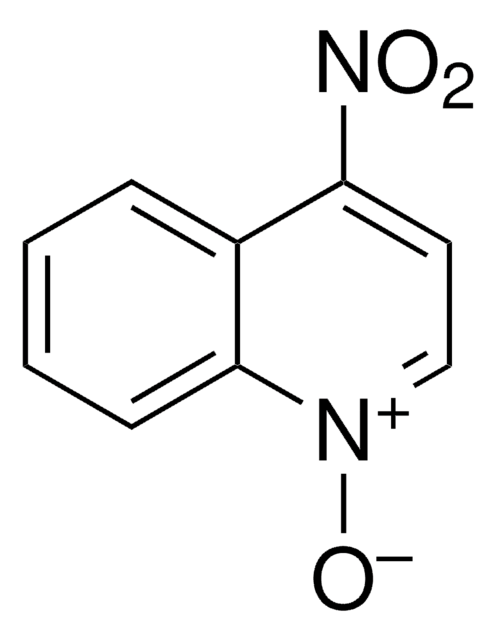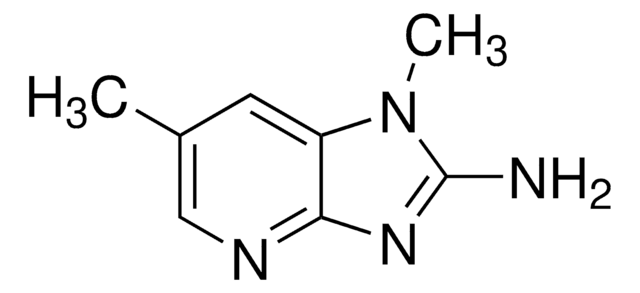Wichtige Dokumente
SMB01383
PhIP
≥95% (HPLC)
Synonym(e):
2-Amino-1-methyl-6-phenylimidazo[4,5-b]pyridine
About This Item
Empfohlene Produkte
Biologische Quelle
synthetic
Qualitätsniveau
Assay
≥95% (HPLC)
Form
solid
Versandbedingung
2-8°C
Lagertemp.
2-8°C
SMILES String
NC1=NC2=NC=C(C3=CC=CC=C3)C=C2N1C
Suchen Sie nach ähnlichen Produkten? Aufrufen Leitfaden zum Produktvergleich
Allgemeine Beschreibung
Biochem./physiol. Wirkung
Signalwort
Danger
H-Sätze
Gefahreneinstufungen
Acute Tox. 3 Oral - Carc. 2 - Eye Irrit. 2 - Skin Irrit. 2 - STOT SE 3
Zielorgane
Respiratory system
Lagerklassenschlüssel
6.1C - Combustible acute toxic Cat.3 / toxic compounds or compounds which causing chronic effects
WGK
WGK 3
Flammpunkt (°F)
Not applicable
Flammpunkt (°C)
Not applicable
Hier finden Sie alle aktuellen Versionen:
Analysenzertifikate (COA)
Die passende Version wird nicht angezeigt?
Wenn Sie eine bestimmte Version benötigen, können Sie anhand der Lot- oder Chargennummer nach einem spezifischen Zertifikat suchen.
Besitzen Sie dieses Produkt bereits?
In der Dokumentenbibliothek finden Sie die Dokumentation zu den Produkten, die Sie kürzlich erworben haben.
Unser Team von Wissenschaftlern verfügt über Erfahrung in allen Forschungsbereichen einschließlich Life Science, Materialwissenschaften, chemischer Synthese, Chromatographie, Analytik und vielen mehr..
Setzen Sie sich mit dem technischen Dienst in Verbindung.![Benzo[a]pyren ≥96% (HPLC)](/deepweb/assets/sigmaaldrich/product/structures/253/820/be96d879-1811-46c0-8f11-612019691c2d/640/be96d879-1811-46c0-8f11-612019691c2d.png)
![2-Amino-9H-pyrido[2-3-b]indole ≥98% (HPLC)](/deepweb/assets/sigmaaldrich/product/structures/351/152/37c98523-590f-4b27-826c-5b3d4b502047/640/37c98523-590f-4b27-826c-5b3d4b502047.png)








